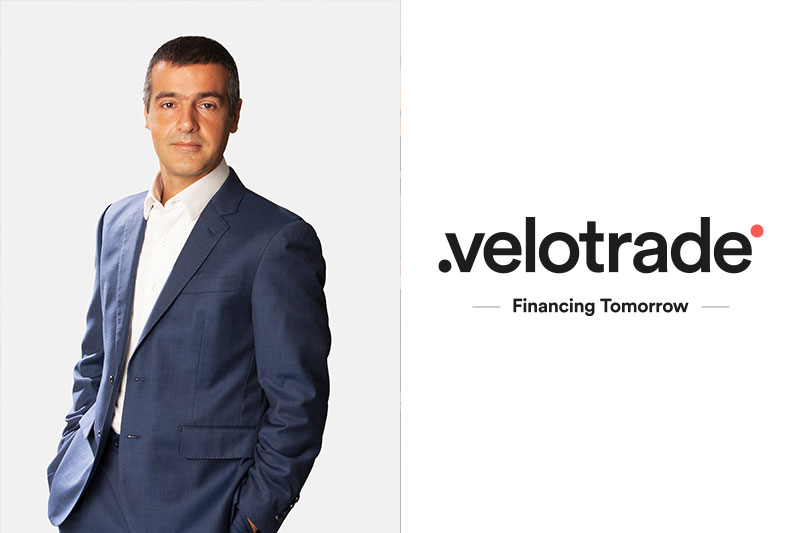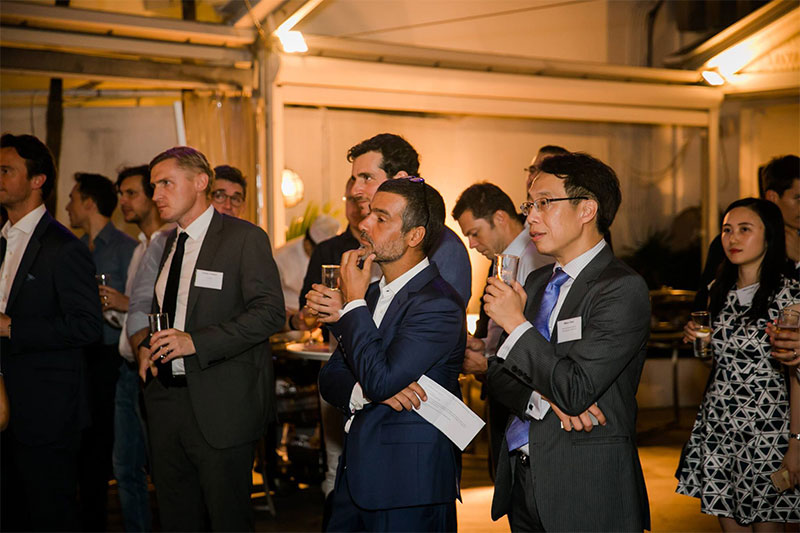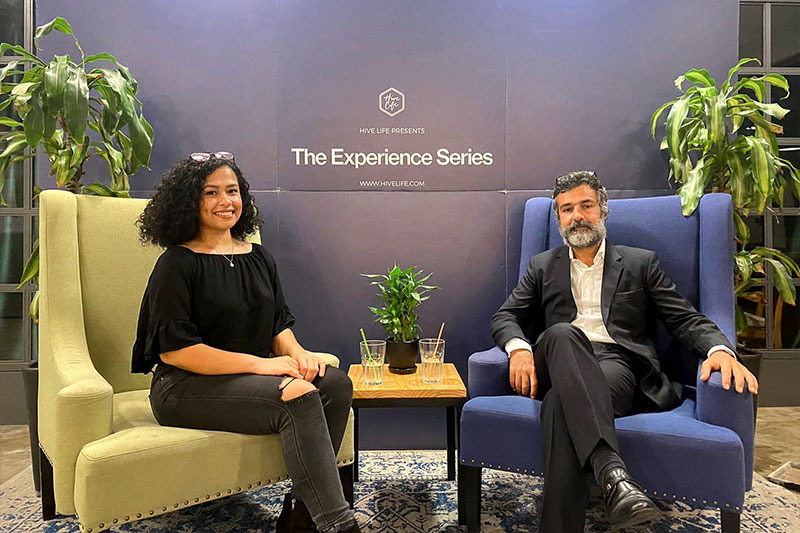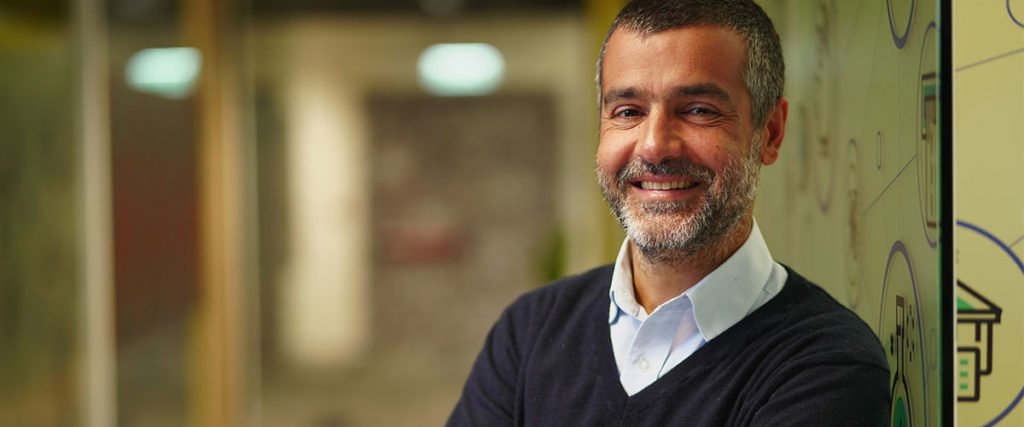Finance veteran Vittorio De Angelis, former Managing Director at Bank of America, divulges valuable tips on startup financing, innovation, and investment.
From trading equity derivatives at JP Morgan, Dresdner, and Bank of America to becoming the Head of Equity Derivatives Asia at Louis Capital Markets in Hong Kong, FinTech entrepreneur Vittorio De Angelis has enjoyed a long and storied career in finance, with over 15 years of experience in the industry.
In 2015, however, Vittorio decided to pivot into FinTech, creating tech solutions for the future. Alongside co-founder Gianluca Pizzituti, he established Velotrade, a digital platform that grants accessible funding to corporates and SMEs. “Velotrade was founded because we perceived a massive imbalance in the market,” he explains. “On one side, there are these huge pools of liquidity as a result of the liquidity poured in by central banks, and on the other side, there are corporates who desperately need funding. This funding gap is immense, and it’s definitely one of the most obvious inefficiencies within the market.”
Spotting an opportunity, Vittorio sought to disrupt a USD 3 trillion factoring market and build a bridge between untapped pools of liquidity held by asset managers, hedge funds, and family offices, and the corporate world, craving for financing. And, as Velotrade began to build up traction, becoming the “Winner of Outstanding Online Invoice Trading Platform” at ET Net’s FinTech Awards in 2017, Vittorio made the difficult decision to quit his “grown-up” job in 2017, devoting his energies to expanding Velotrade full-time.
Regulated by the Securities and Futures Commission of Hong Kong, Velotrade is now an innovative online marketplace that connects businesses willing to sell their trade receivables with investors who are willing to advance funds.
We sat down with Vittorio to pick his brains on the trade finance world and gain some valuable insights into corporate financing strategies.

Was there an “aha” moment for you that made you decide to start Velotrade?
An old colleague of mine showed up in Hong Kong, and he came from the same world of investment banking as me. The “aha” moment was when we went to an insurance company, and we asked to get coverage for some counterparts, which could not get any funding from the banks, and we heard, “Yes,” “Yes,” “No,” “No,” “Yes.” We looked at it and said, “This is a market inefficiency,” and when we dug deeper, we found out that it was a much larger inefficiency than we had originally thought.
And so it was the realisation that there were two worlds – one world with too much liquidity, and a bigger world next to it which was desperate to get that money, which made it pretty obvious. Sometimes in life, there are opportunities that you just can’t let go of, and this for me was that opportunity. I looked at it and realised that it was a perfect storm, and if I had let it go, I don’t think I could have found anything as appealing. We’re now four years into the venture and it’s looking even more exciting than ever.
Velotrade uses trade finance to help corporates raise funds. How does this benefit investors?
Trade finance is a short-dated investment from the investors’ perspective. Assets on our platform range between 30 to 120 days, sometimes 180, and so, every time there is an expiry or renewal of a transaction, you can reassess risk and adapt pricing to the changing conditions. There is nothing I can think of which is short-dated and displays as attractive a risk-return profile.
Central banks have done Velotrade a massive favour by smashing base rates to zero virtually everywhere, so if the investment on trade finance assets made sense before, it makes even more sense now, as it’s become very competitive. Five to ten years ago, trade finance was a very boring segment of finance because it was monopolised by banks. But now, with these bridges, trade finance has become very exciting. In terms of liquidity, return, and risk, there’s nothing comparable. The funding gap between the liquidity available and corporates is massive and will take years to fulfil, so this opportunity is very real and very present.
What are the biggest startup mistakes when it comes to raising funds?
When you sit in front of an investor, especially in the early stages of company development, the investor is betting on you. You have to be passionate enough to convey your vision and your dream to that investor. It’s definitely easier if the product is already out there and you have some way of demonstrating it, but most times, during that first phase, the product isn’t out there yet, and so you need the investor to buy into you.
The first big mistake that founders often make when looking at attracting money is to be distracted by the money itself. I have huge respect for money because money obviously doesn’t grow on trees, but you can have the same dollar amount coming from two different investors where one has an enormous impact on your business and the other doesn’t. You want to look for strategic investors, and not investors who can only offer money.
Another big mistake that founders make is to look at everything through rose-tinted glasses. When you have a meeting, nobody’s going to say bad things. What I find most frustrating when I’m seeking capital is investors who want to keep their options open, because they’ll never say no. That’s the worst thing that can happen because things just drag on. I’d much rather an investor be honest and say to me, “You know what? I don’t like your business,” because then I can at least put a cross through his name and move on.
The final common mistake is to bring on an investor who has different objectives from you. The ideal investor is a strategic investor because your success is his success, while others are just in to make a capital gain. The timeframe and the way they achieve that might not coincide with your vision of creating a great corporation. There are stories about investors having a portfolio of companies and pushing, say, 20 companies, knowing that 16 of them will probably fail, but that they’d make enough money from the other four. When shareholders have different objectives in mind, it can be very distracting for the growth of the company.

What advice do you have for younger or smaller businesses who are currently struggling because of COVID-19?
The ongoing situation is obviously very harsh, but the reality is that any business faces obstacles and hurdles all the time. To some enterprises, this current situation could even be seen as a positive thing, and some businesses like e-commerce are flying. The advice I’d give to businesses is to be flexible. At Velotrade, everything we have is online, so if we had to change our offices tomorrow, we’d lock one door and open another. It’s not a big deal.
On the other hand, some companies might be bogged down to a physical workspace. If something happens to that building, town, city and you need to move, then you’ll be in trouble. I think that the current situation is demonstrating which companies have the flexibility to react and survive, and which ones don’t.
With how volatile markets can be, what is your go-to response when it comes to protecting your assets?
The ultimate safe haven is food and water, but that’s a little extreme. Realistically, cash used to be king, but cash is currently losing value because of excessive printing by the central banks. In volatile markets – at least those that don’t resemble Armageddon scenarios, the safest method is to find assets that are solid. What we’re doing is a relatively safe way to navigate through a volatile market. We had zero defaults throughout one of the worst crises ever, but we are still returning money to our investors. The beauty of it is the ability to reprice assets on a monthly, bi-monthly, or tri-monthly basis, which is something rather unique.
Many might even say gold, but ultimately gold is only worth a lot because we’ve all decided that it’s a safe haven. You can’t eat gold and the industrial use of gold is also relatively limited. Looking back at the last nine, ten months of this year, our assets have been one of the best-performing assets in the market.
Would you want your own kid to go into traditional banking based on how it’s changed over the years?
Banking today has become far more boring than what it used to be. When I think of banking, I think of investment banking as a result of my personal experiences, and I’d say investment banking is perhaps the more exciting part of banking. Would I like my kid to get into a very good investment bank to start his career? I’d say yes, because they are extremely competitive environments where you learn how to work, and they’re extremely formative. Would I want him to stay there for 20 years? Probably not.
But again, the world is changing. When I graduated, banking was one of the best options. I think kids today are unlucky because there’s a lot more competition, but it’s balanced out by the fact that they also have many more choices in front of them.

What’s the future of finance?
The disintermediation of finance will continue. We have partnered with traditional financial institutions such as banks before, and we don’t feel as if we’re competing with them as much as we are complementing what they have to offer. Some parts of their business are unassailable for us. For example, banks collect deposits, and so they have almost-infinite access to liquidity. But there are also aspects of finance that traditional financial institutions can’t cover, such as trade finance.
Additionally, technology will continue to enable more and more information to be transmitted, and so those inefficiencies that plague the market will be reduced over time. Everybody also talks about blockchain. It might be one of the solutions to create a perfect market, and we’ve explored that aspect as well, but it’s still in a very early stage. In general, the further improvement of technology will allow investors to make better risk assessments, as well as allowing corporates to demonstrate their strength and prove that they’re worth being invested in.
What’s the big picture for Velotrade? What are the next steps you want to take?
Nowadays, as a result of the expansion of technology and the Internet, many young companies are just fishing for maximum possible growth and expansion, while constantly looking for potential exits. The flipside of that is if that exit doesn’t happen, everything blows up. The investors and everyone involved with the company will lose money. Our belief is that it’s not always the right approach to work with an exit in mind. Rather, we want to create a great, profitable corporation – one that has a faithful base of clients.
We’re here to serve our clients, both corporates and investors, and we want to create value. And if we do that properly, the exit will happen. If at some point there’s a potential exit, I will consider it. However, we go to the office every day not because we are thinking about someone else buying the company someday, but because we want to create a great company.
Related Articles
What Can Personal Investors Learn From 2020’s Market Turmoil?
15 Things You Should Know About Crypto
5 Growth-Hacking Strategies You Need to Grow Your Business Fast





